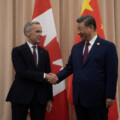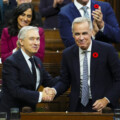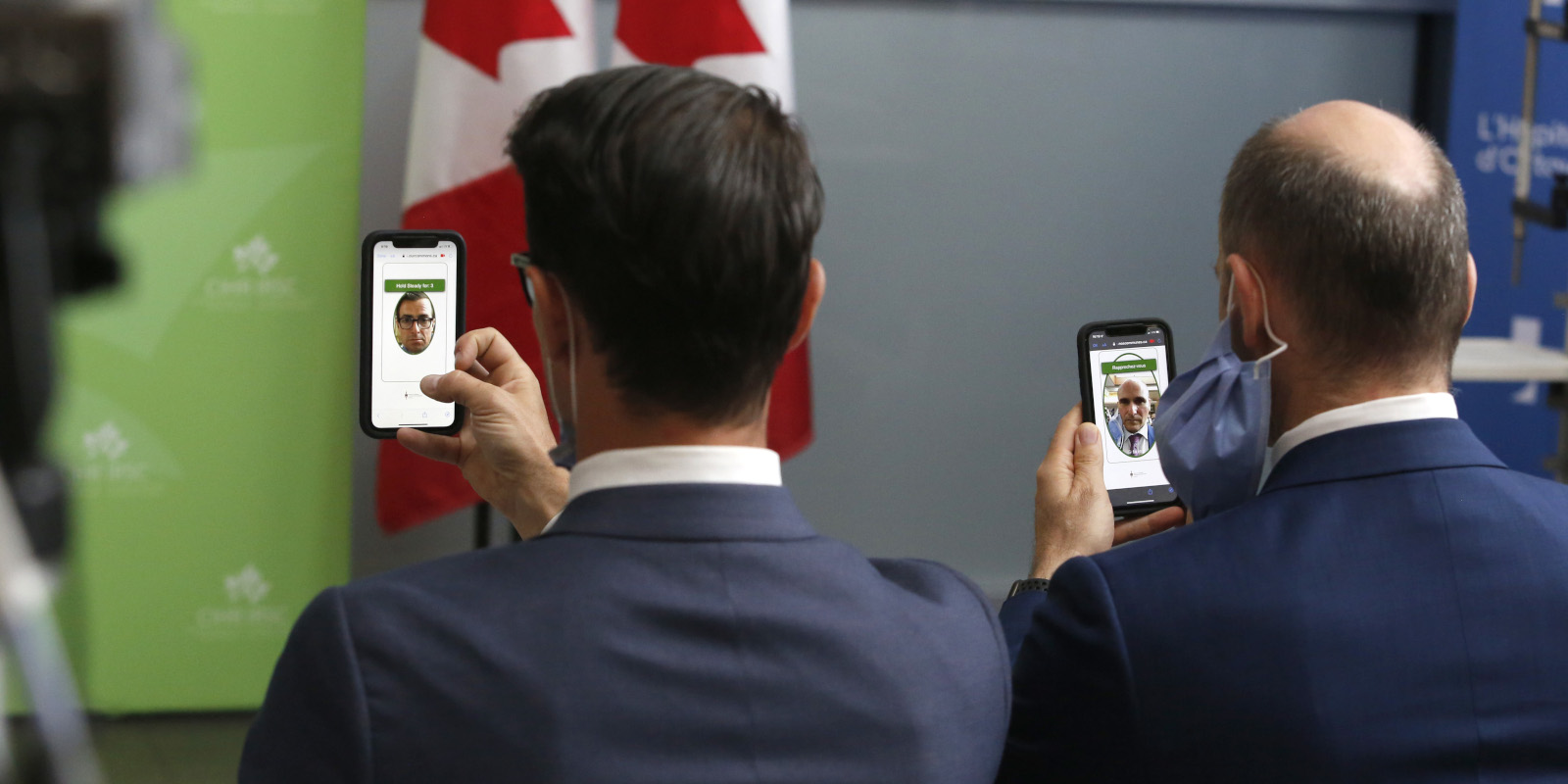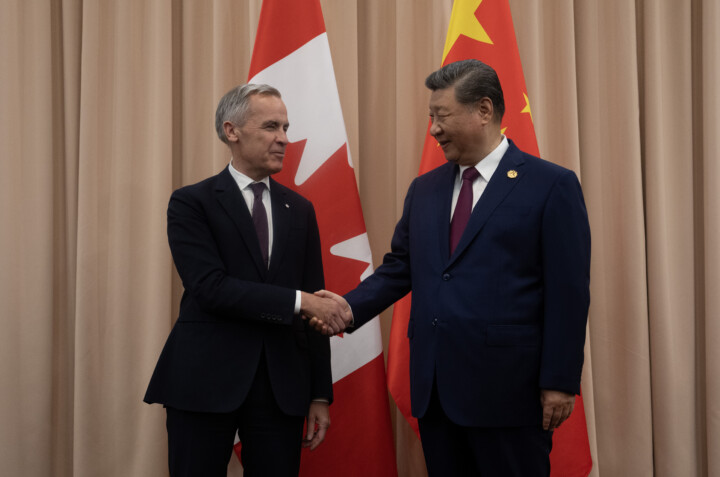After a long summer break, Canada’s members of Parliament will return to the House of Commons on Monday. Well, some of them will.
And those who return to Ottawa can easily cast votes on an app from a local coffee shop, their nearby office, or even the sidelines of a news conference.
This is the world MPs will be returning to after pandemic-era changes to the way Parliament functions were made permanent in June. Like Canada’s public servants, and many other white-collar workers, members of Parliament got a taste of remote work and decided they liked it.
Whether that makes Canada a bold leader in creating a flexible workplace, or a pandemic laggard that has lost key tools for keeping its government in check, likely depends on your partisan affiliation.
The change is just about permanent: after a House of Commons committee recommended the switch to hybrid Parliament, the government adopted a motion to keep the pandemic-era changes in place, with the only caveat being that a review will be conducted after the next election to make sure everything is working as hoped.
The vote split down party lines, with most NDP and Liberal MPs voting in favour and Conservative and Bloc Quebec MPs voting against.
Both sides admit there are trade-offs either way. But opposition MPs say their ability to hold the government to account has been severely hampered, not just from the impersonal nature of virtual Parliament but because of rule changes that accompanied the switch.
“It’s hard to hold government accountable in a hybrid Parliament where ministers can easily cut and run. It’s easier to represent our constituents, and we’re proud to do it, when all MPs are physically in the parliamentary precinct,” said Bloc Quebecois MP Andréanne Larouche, in a committee hearing about hybrid Parliament.
Both opposition parties published dissents to accompany a recent committee report that recommended the switch to hybrid Parliament and the Bloc Quebecois flagged rule changes they say were entirely designed to “muzzle the opposition.”
No longer is the Speaker of the House of Commons required to read the motions that the House will be voting on and the Speaker will also have the power to combine multiple motions into a single vote.
That rule change takes a big weapon out of the opposition arsenal, the Bloc argues.
“The opposition uses this strategy as a last resort to apply leverage when a majority government barrels ahead and does not take into account the opposition’s requests,” the dissent reads.
During debate in June about the government’s motion to make hybrid Parliament permanent, Conservative MP Michael Chong said that the recent foreign interference scandal shows the government is already bucking accountability in the new parliamentary format.
The recently-called public inquiry into foreign interference wouldn’t be necessary if Parliament could function properly, argued Chong.
“We should aspire to a Parliament that can do the work we are punting to a public inquiry,” said Chong.
Hybrid Parliament is so inefficient that MPs have lost several sitting days due to slower voting procedures, not to mention “time lost because of microphone checks, technology failures, and the cancellation of committee meetings due to a lack of technology resources,” argued Chong.
In an interview with The Hub, NDP MP Carol Hughes said she doesn’t buy those arguments from the opposition, because they take advantage of the hybrid system even though it is optional. She said she’s seen opposition MPs walking out of the chamber for the day while loading up the voting app.
“For those parties to be saying that we shouldn’t have hybrid Parliament, yet they take advantage of it, it’s speaking out both sides of your mouth,” said Hughes.
Other MPs argue that the flexibility of hybrid Parliament is vital to casting a wider net for potential MPs, attracting young parents and other Canadians who have been put off by the long stretches away from home.
In some far-flung parts of Canada, MPs spend nearly an entire day travelling home after a week in Ottawa only to turn around a day later and do it again.
“Imagine if… [your] employer said you’re allowed to see your kids on Saturday. And we need you to work that day. That’s the current life under the old system. I don’t think any Canadian would see that as reasonable,” said Terry Beech, who represents a riding near Burnaby in British Columbia, to Politico.
Conservative MP Tom Kmiec said his experience is that, on top of all the other downsides, the work-life balance offered by hybrid Parliament is mostly a mirage anyway. Inevitably, the distinction between constituency weeks, when MPs are in their local riding, and sitting weeks, when they are in Ottawa, will fade away, he argued.
“If I can do a Zoom meeting on a Sunday just to keep doing my work, that takes away the Sunday as a family day, essentially. There is no work-life balance possible, I don’t believe, in a hybrid Parliament setting,” said Kmiec, at a committee meeting discussing hybrid Parliament.
Bloc Quebecois MP Andréanne Larouche echoed Kmiec’s concerns about work-life balance being harder under a hybrid system.
“Sometimes it’s hard to keep things in check when you’re working from home. That became obvious during the pandemic. We let go and the number of Zoom meetings grew. It went on and on until we could no longer tell the difference between work time and personal time,” said Larouche.

Hughes said most MPs will prioritize being in Ottawa and that hybrid Parliament will only be for extraordinary circumstances. Especially, for young families, it could be key in attracting people to the job of MP, she argued.
“If you want to attract young families, there has to be an avenue that, if they happen to need to be home, then they should be,” she said. “The challenge in Ottawa is that we don’t have a system in place that responds to the needs of young families.”
David Frum, the conservative author and journalist, said something fundamental about our democratic institutions will be lost with the permanent switch to hybrid Parliament.
“When you have Parliament remotely, you don’t have Parliament at all, you don’t have debate, you don’t have the possibility that the mood of the House could change against leaders, you don’t have any possibility that a leader would be caught in a lie in a way that actually makes that leaders own supporters rethink. All of those things are eliminated,” said Frum.
“You’ve just got voting monkeys, which is absolutely, of course, the way most prime ministers and especially this prime minister would like the MPs to be,” he said.
Some experts warn that MPs and Canadians might find themselves missing features of a bustling in-person Parliament that surprise them.
They may even miss the perennially maligned act of heckling fellow MPs, said Jonathan Malloy, a professor of political science and the Dick and Ruth Bell Chair in Canadian Parliamentary Democracy, to a university reporter.
“Question period is not necessarily supposed to be polite. Heckling, for better or for worse, has a very long tradition in the Westminster system of government and you can’t build that same sense of an atmosphere virtually,” said Malloy.
Recommended for You

China is not the answer for Canadian prosperity

‘We lost the plot’: John Ibbitson and Darrell Bricker on why Canada has reached a crisis point

DEI isn’t dead yet

Carney’s budget has a $94 billion gap in investment spending and a shortfall in government operating balance: PBO



